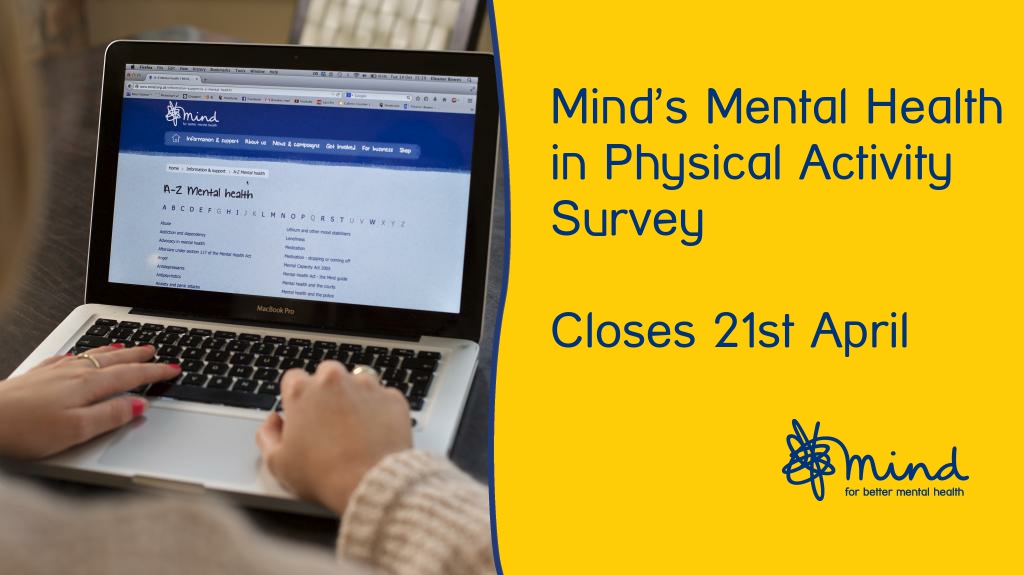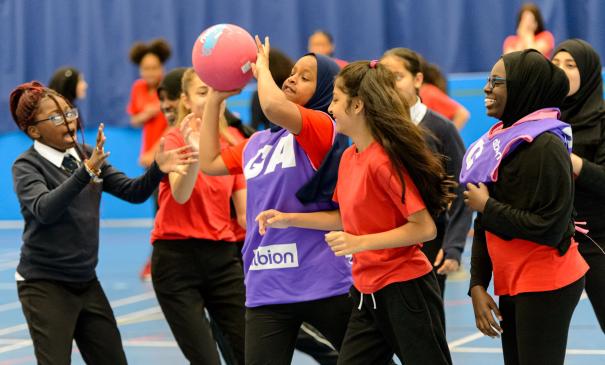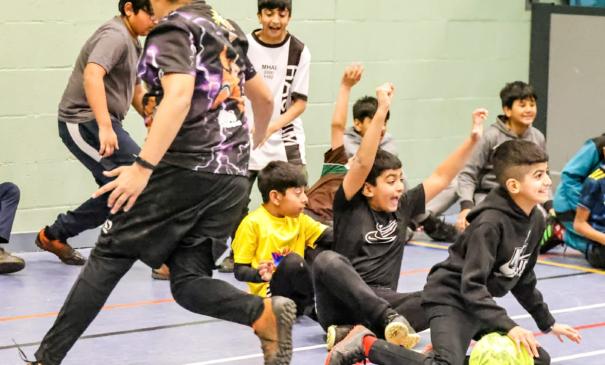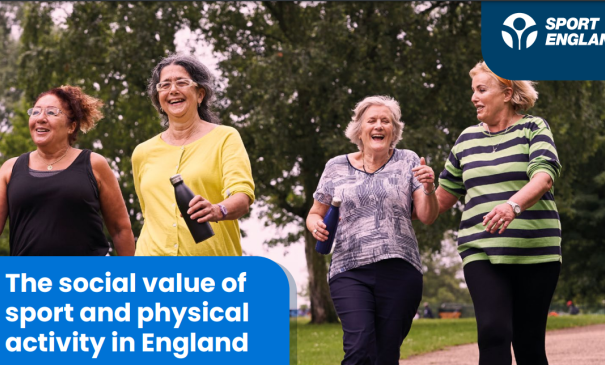The Sport for Development Coalition and Mind have issued a joint call for case studies, learning and evidence on the contribution of sport and physical activity to mental health and wellbeing during the Covid-19 pandemic and recovery period.
The evidence will inform a series of roundtables with key stakeholders from both the mental health and sports sectors and a comprehensive report and policy brief being prepared for policy-makers and sector leaders. The deadline for submissions to the briefing is April 30th - read more here.
The Coalition commenced its partnership with Mind, the national mental health charity, with an online forum, entitled 'Sport tackles the Wellbeing Crisis’. The forum was led by Ollie Dudfield, Executive Director of the Coalition, and Hayley Jarvis, Head of Physical Activity for Mind.
Hayley welcomed the policy briefing and roundtable, which she feels can play a vital role in the “system change” required around mental health and physical activity’s contribution to it. She said: “We believe there should be a cross-governmental plan for mental health, and that sport and physical activity should be a core part of that. It is a vehicle for achieving those wider mental health outcomes, whether it's participation, volunteering and coaching, or spectating.”
Mind is also keen to build on, and accelerate the work done so far to “embed mental health in sport policies,” Hayley explained.
“We've got a duty of care to our staff, our volunteers, our participants,” she said. “And so making sure people are educated and engaged and supported on that journey…. making sure they get the right mental health education at the right time on that pathway I think is key. We need to embed mental health in sport.”
SOLUTION
Finally Hayley described how Mind is committed to “building confidence” within the health sector that, when delivered safely and effectively, sport and physical activity can be “part of the solution” for mental health practitioners.
“Whether that's community mental health services, building it in around social prescribing, for people on waiting lists for IAP services, at the moment all of those things are so target-driven, and actually I think by working differently in those settings that we could support people's mental health that way.”
She told the forum: “I really think we're moving into really exciting territory around how we can really influence. We've got the evidence. Now's the time to create that system change and I'm very excited about that.”
The forum featured projects drawn from the Coalition's growing network of more than 180 organisations. Callum Kwasnik, local co-ordinator for Mind's 'Get Set to Go' programme (pictured above) in Hertfordshire, and Hannah Marsh, from the Stevenage FC Foundation, spoke about the success of the project in supporting local people with mental health problems – Mind research reports that being physically active can reduce someone’s risk of depression by up to 30%. The programme is funded by the EFL and Sport England.
Author and freelance journalist Hannah Green talked about the 'Get on Track for Wellbeing' programme from the Dame Kelly Holmes Trust, which she participated in after experiencing homelessness and PTSD. Recalling the programme, she told the forum: “Little things just pushed us a little bit at a time…. before I knew it, I was kind of like leading the group. They did it in a way so that you didn't really realise you were doing it until you were doing it.”Hannah described how she also participated in 'surf therapy' with the Wave Project. She added: “The first few waves I caught just on my knees, didn't even stand up…. but that feeling of catching the wave, it was just like this sense of freedom that was just incredible.”
This report from Sport England provides multiple sources of reference underscoring the evidence of sport and physical activity in maintaining and improving mental wellbeing – including the alleviation of stress or PTSD. The Faculty of Sport and Exercise Medicine UK reports that the Royal College of Psychiatrists recognise “exercise prescription as a treatment modality for a wide range of mental health conditions”. Nonetheless it warns there is still “a stigma that surrounds people suffering with mental health conditions, which can act as a barrier to physical activity and participation in sport”.
OUTCOMES
The ‘Coalition Tackles’ series of webcasts and podcasts are part of the over-arching ‘Adapt, Support, Respond’ initiative which aims to support, evidence and advocate for sport and physical activity’s contribution to the recovery from the Covid-19 pandemic.
Through this initiative the Coalition will examine key social outcomes that sport and physical activity can contribute to and analyse key policy issues related to maximising access and impact. The format has been created to support the Coalition’s core objectives of advocacy, impact and investment, and following extensive consultation with supporters of the movement, and key stakeholders across the sector.
Read the Request for Submissions here. To submit your evidence, email [email protected].

Meanwhile Mind is also calling on grassroots sport and physical activity organisations which work at a county to national level in England and Wales to complete its ‘Mental Health in Physical Activity’ survey. The survey aims to take stock of mental health in physical activity so Mind can improve the support they provide to the sector.
Please note the survey isn’t appropriate for sports clubs and physical activity providers at a local level. Click here to take the survey.



